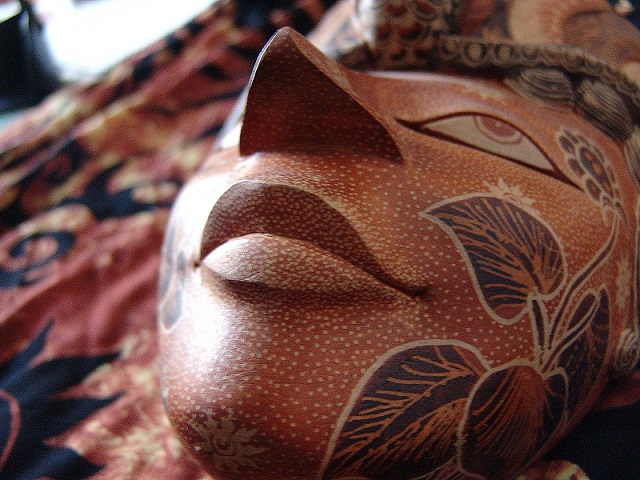Pupetry in Canada
There are a number of associations, schools, and events with a focus on puppetry and artistic practices. Artists work across different settings as film and TV puppeteers and with travelling shows.
Puppetry Schools
The Toronto School of Puppetry features a selection of classes such as shadow theatre experimentation, Chinese shadow theatre, and toy theatre making. Students also explore topics such as live animation, glove-hand puppetry, construction and design, sound and voice, and scripting techniques. There are intensive courses designed for writers, teachers, puppeteers, designers, directors, and actors, focusing on found objects and types of puppets, forms of communication, fabrication, and the creation process itself. Workshops organized by the school teach students how to set devices and pieces and create mechanical sculptures and toys. Workshop participants gain understanding and knowledge of different mechanisms such as cams, cranks, and levers. They also learn how to construct and design automata by using materials such as fasteners, pieces of wood, dowels, foam-core, and cardboard. Teaching staff has extensive experience in creating interactive video animations, robotic installations, sculptures, and theatre productions.
The Canadian Academy of Mask and Puppetry also offers a selection of intensives and classes with a focus on shadow puppetry, mask work, lantern making, and more. There are other institutions that offer courses, trainings, and workshops, including Humber and the Mermaid Institute of Puppetry Arts. Courses and workshops focus on construction and production, group creation, and costumes and characters. The Mermaid Theatre of Nova Scotia also features school and group workshops and performance workshops. Teaching staff includes experts in different fields, including construction, design, dance, music, and theatre. Outreach and in-house sessions are offered, targeting theatre professionals, recreational professionals, and teachers.
The Banff Centre for Arts and Creativity also features a program that targets writers, visual artists, teachers, designers, directors, dancers, and actors. Students learn more about mask work, physical theatre theory, and theatrical performances. Applicants may also choose from additional programs such as Banff Artist in Residence Emerging, Winter or Spring Writers Retreat, and Concert in the 21st Century. They are asked to provide information such as their educational level, last institution type, and citizenship. Indigenous students may also specify whether they are Inuit, Metis, non-status Indian, or status Indian.
Calgary-based WP Puppet Theatre offers a workshop that helps students to develop skills and competencies such as global and cultural citizenship, communication, and innovation and creativity. The workshop focuses on character performance and development, script writing, and puppet making.
Read MoreAssociations
There are several associations across Canada, among which the Ontario Puppetry Association, Atlantic Canada Puppetry Association, and others. Partnering with Union Internationale de la Marionnette, the Ontario Puppetry Association was founded in 1956 as a major organization to promote and support this art form in Ontario. Applicants who are interested in becoming members are asked to provide details such as their interests, company name, website, etc. Established in 2015, the Atlantic Canada Puppetry Association is affiliated with organizations such as UNIMA-International and UNIMA-Canada. The main objectives of the association are to engage audiences, support programs, and link professionals in Canada and across the world. Applicants for membership are asked to fill in an application and provide details such as company affiliation, occupation, and interest in the industry – fan, non-professional practitioner, educator, recreation leader, or professional practitioner.
Read MoreJobs
Puppeteers have training and education in theatre art, dramatics, and drama. They find employment as theatre performers, theatre studio assistants, storytellers, and puppet makers. Puppeteers, for example, adapt and create scripts and design and construct puppets from rubber, metal, wire, Styrofoam, papier-mache, and wood. They use hands, fingers, rods, wires, and strings for animation. The average salary of puppeteers is about $35,530 while entry-level professionals are paid about $27,440. Professionals with work experience of 8 or more years earn about $42,120.The hourly rate is between $14 and $16 based on experience.
Read More
